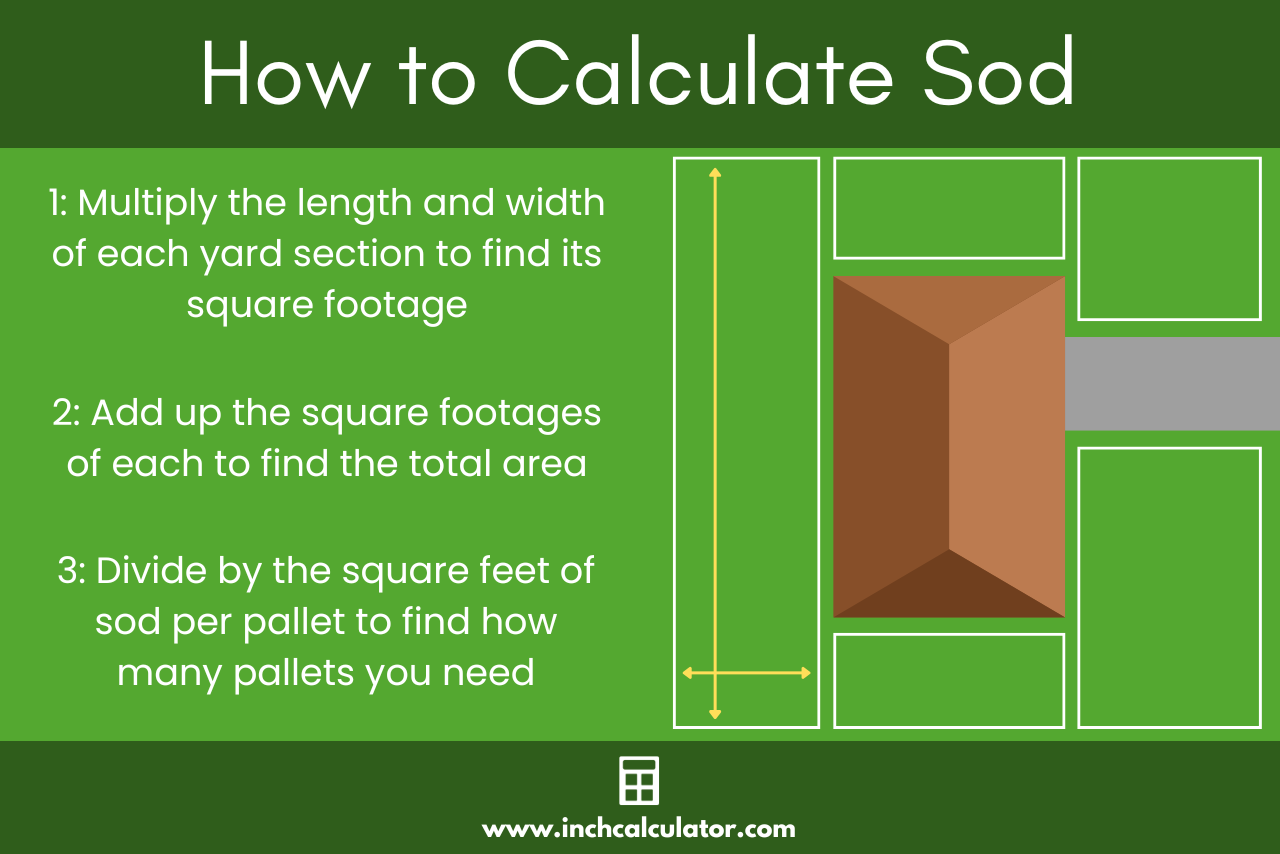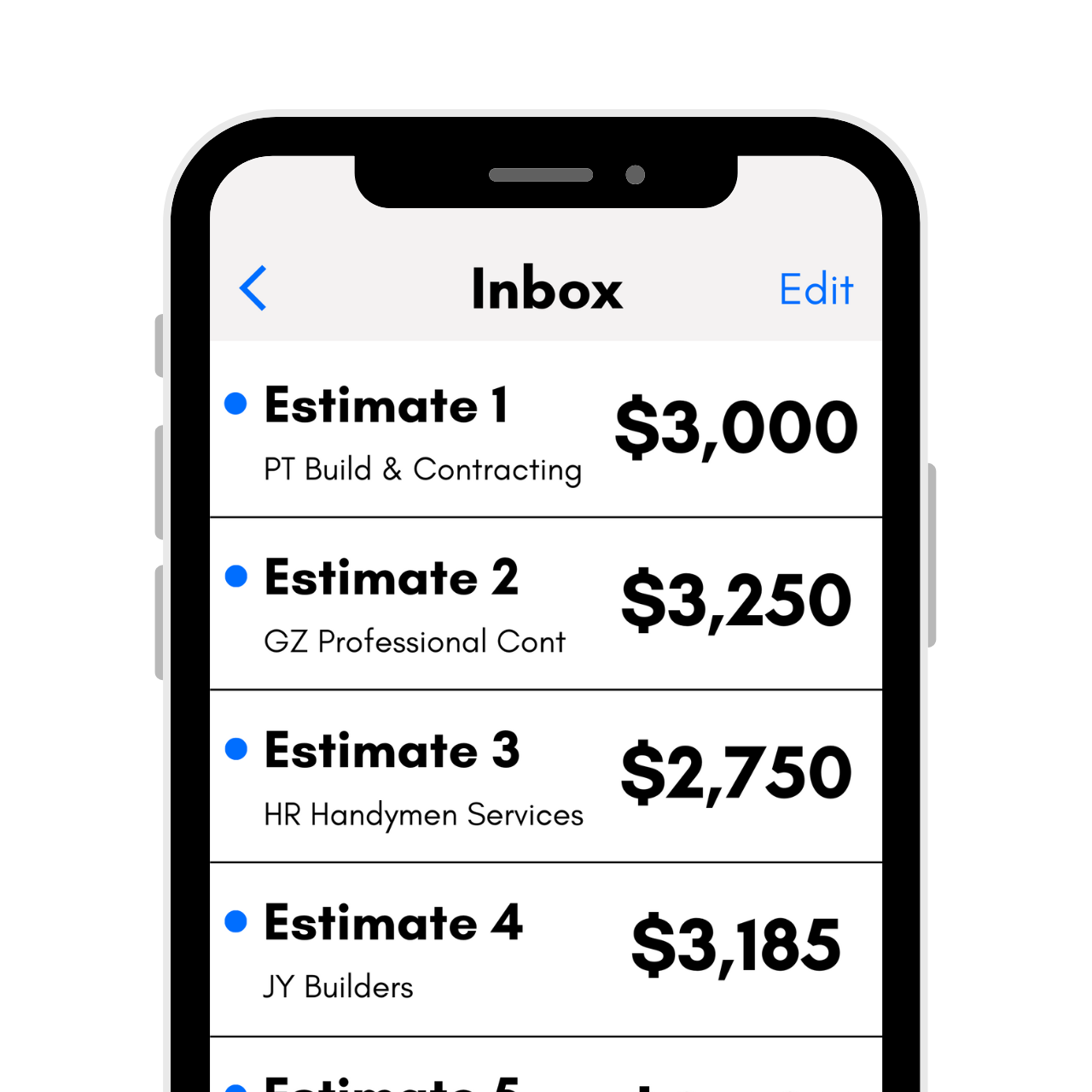Sod Calculator
Enter the size of your lawn to estimate how much sod you need, and add the price per roll to estimate how much it will cost.
Sod Estimate:
| Total Rolls (10 sq. ft.) | |
| Total Slabs (2.67 sq. ft.) | |
| Total Pallets (450 sq. ft.) |
Total Area
Total Sod Cost
On this page:
How to Estimate Sod for Your Lawn
Growing a lawn from seed is very economical, but can be tricky and time-consuming as well. If you are considering seeding your lawn, you can use our grass seed calculator to help find the right quantities.
If you don’t want to wait for seeds to take root or deal with muddy soil before the lawn grows, laying sod can be a great alternative.
Steps to Calculate Sod
To calculate how much sod you need, you need to know how big the area is that you want to cover. Measure the length and width of the area in feet. Plug those numbers into the calculator above and let it do the work for you.
If you know the acreage you are covering, you can use that number as well. If your area is irregular in shape, measure it in smaller, regularly shaped areas, calculate each of them separately, then add the results together.

- Split the yard into smaller, regularly shaped areas and multiply the length and width of each one to find its area in square feet.
- Add the results of each area together, or use our acreage calculator to find the total square feet of lawn.
- Divide the square footage result by to size of the roll, slab, or pallet you’re using to find the amount of sod needed – most rolls cover 10 sq. ft. and most pallets cover 450 sq. ft.
- Multiply the number of rolls, slabs, or pallets by the price per to estimate the total sod cost.
Example Sod Calculation
Suppose you have a new yard that is 0.13 acres that you want to sod in Kentucky Bluegrass, which costs $4 per roll in your area.
0.13 acres × 43,560 sq. ft. = 5,662.8 sq. ft.
5,662.8 sq. ft. ÷ 10 = 567 rolls (10 ft. sq. rolls)
567 rolls ÷ 45 rolls/pallet = 12.6 pallets or 12 pallets + 27 rolls
Cost = 567 rolls × $4 = $2,268
If you already have a specific type of sod in mind and know the price, insert that price into the calculator for a more accurate estimate of the cost. If not, learn more about how much sod costs. The calculator above instantly tells you how much sod you need in rolls and pallets, plus the approximate cost.
Sizes of Sod Rolls & Slabs
Sod comes in pre-cut rectangles that are stacked or rolled. The size of the rectangle depends on what type of machine the grower used to harvest it.
The rectangles can range from 16″ to 24″ wide for “rolls” and up to 4′ wide for “slabs.” Lengths vary as well and can range from 3½’ to 6′ long.
Follow the example above to calculate the number of rolls by dividing the total square footage by the square feet per roll.
How Much Sod is on a Pallet?
Sod is usually sold by the pallet, so it’s a good idea to estimate quantities by the pallet, especially for larger projects.
In most cases, there are 450 – 500 square feet of sod on a pallet. Each pallet has 60 rolls or 100 slabs of sod.
How Many Square Feet of Sod Are on a Pallet?
450 – 500 square feet per pallet
If your turf supplier uses non-standard sizes, they will be able to give the coverage of a roll or slab in square feet.
Tips for Buying Sod
For very small areas, you can buy sod by the roll. But, if you have more than 400 square feet, consider buying it by the pallet. Your supplier will usually deliver it for a small fee.
If you are contemplating transporting sod yourself, bear in mind that one pallet weighs 1,500 lbs and 3,000 lbs, depending on the moisture content. Ensure that your truck or trailer is capable of handling this load safely.
Tips for Laying Sod
You must lay sod on tilled, leveled soil. It’s common to till the current soil about 6″ to 8″ down. Once tilled, you should check the pH of your soil; if the soil is too acidic or alkaline for the grass you want to lay, it may not take.
Therefore, you may need to amend the soil. It’s common to spread 2″ to 3″ of compost on the tilled soil to help amend it if necessary. It’s also common to put down a fresh bed of topsoil, or soil that has been screened to remove impurities and break up clumps.
You can use our soil calculator to calculate the amount of compost or topsoil you will need.
Once laid, it’s also common to fertilize and water your sod to help it start out healthy. If after it’s had a chance to begin to root, you find some areas that are sparse, yellow, or that didn’t take, you can overseed these areas with the same type of grass to help replenish them.
Contractors can help you with soil, grass variety choices, delivery, and installation. You can use our contractor locator tool to help you find local contractors willing to give you a free estimate for your project.
Our lawn mowing calculator will help you estimate how long it will take to mow your new lawn. Enjoy your new lawn!



